Despite the proven effectiveness of early warning early action in reducing disaster impacts and saving lives, around one-third of the global population is still not covered by early warning systems. Furthermore, research indicates that even when information reaches at-risk communities, it is often not properly perceived or acted upon to mitigate risks.
Communication barriers, social and cultural stigma, lack of accessibility of infrastructure, and the absence of effective social safety nets continue to prevent communities from accessing timely early warning and risk information. These obstacles disproportionately affect marginalized and minority groups, making it even more difficult for them to access and act on early warning information. These groups are often referred to as "last mile communities," as they are the farthest away, most difficult to reach, and/or the last to benefit from programs or services.
To help address these gaps, the Global Disaster Preparedness Center, in collaboration with of the Risk-informed Early Action Partnership (REAP), launched a research grant program which aims to enhance literature on early warning early action and contribute to the expansion of the evidence base for more inclusive and people-centered approaches. This research was funded with UK International Development from the UK government.
Fifteen research teams were selected from almost 280 applications spanning over 60 countries. The grants support research projects across Latin America, Africa, Europe, and Asia Pacific, fostering evidence and insights from diverse contexts worldwide.
Learn more about each project by clicking on the map icons or scrolling down to read research abstracts.
Meet the researchers
Topic 1: Accessibility, inclusivity, and actionability of early warning messages among last mile communities
Chinmayee Mishra, India
Institution: Utkal University
Research Project: 'Disasters can’t happen here. Lord Jagannath will save Us’: Exploring women’s experience of barriers to Early warning system in Odisha, India
About the Researcher: Chinmayee Mishra is a UGC Senior Research Fellow doing PhD in Sociology at Utkal University, Odisha, India. She is pursuing her research on vulnerability and resilience of women in disaster. Her research interests include but are not limited to sociology of disaster, energy and society and visual sociology. Her recent research publications explore social solidarity during a pandemic and ethnographic account of the experience of rural women in a disaster. As a researcher, she is committed to advancing theoretical knowledge and evidence-based solutions to pressing social issues.
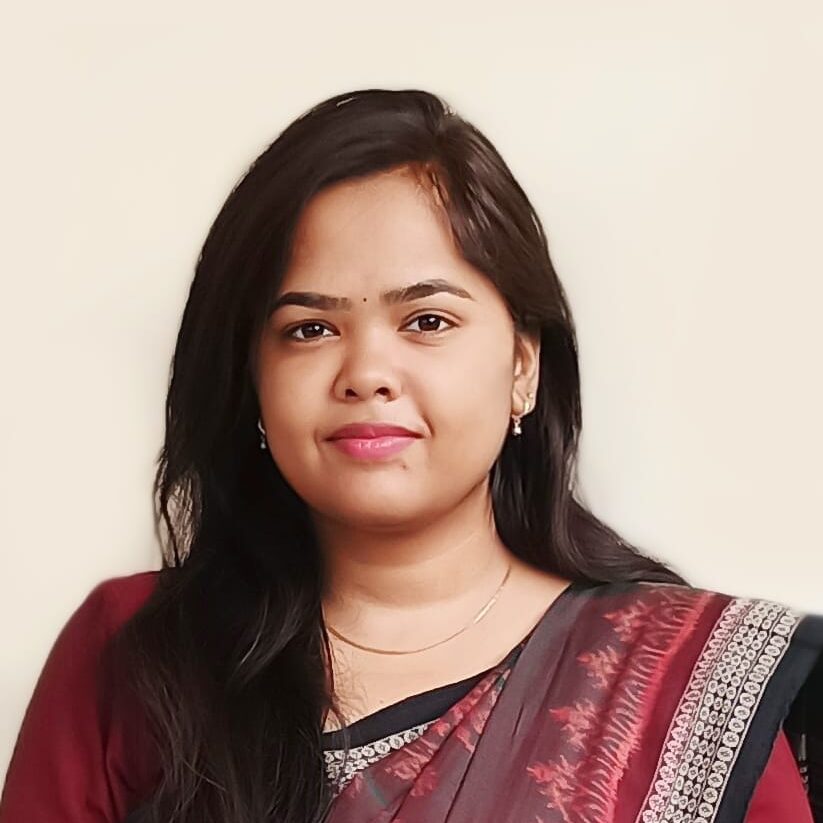
Early warning is essential to limit the loss of lives and livelihoods due to hazards and disasters, especially for the vulnerable population. The research aims to know whether early earning reaches women from different socio-economic backgrounds and how it affects their disaster preparedness. A field study after cyclone Fani reveals that women's risk perception was very low even after getting the early warning. Most of the respondents believed that as Puri was the abode of Lord Jagannath, disasters can’t happen here. Religious belief is one factor, and the study proposes to explore the other barriers and facilitators for disaster preparedness of vulnerable groups. By using triangulation method, the data will be collected and analyzed through the force field analysis in an intersectionality framework.
Dr. Mohapatra is currently working as an Assistant Professor of Sociology at School of Social, Financial and Human Sciences, KIIT Deemed to be University, Bhubaneswar, India. His research work is centered towards community development, women empowerment, corporate social responsibility and state business-society relations. Presently, he is developing a CSR Model for community development and well-being through sustainable management of CSR projects.
The present study is located in one of India's disaster-prone states, i.e., Odisha. Odisha has a good track record in disaster management and strives to disseminate disaster-related information to the last mile community. The research aims to contribute valuable insights for practical and targeted intervention by systematically identifying and analyzing the barriers to early warning. The study findings can help inform policies and improve practices for vulnerable communities to have better access to disaster-related information through stakeholders.
Linda Obiero, Kenya
Institution: University of Nairobi
Research Project: Barriers to accessing early warning messages and factors impeding their comprehension and inclusivity in Kolwa East Ward, Kisumu County, Kenya
About the Researcher: Linda Obiero holds a PhD in Environmental Governance and Management from the University of Nairobi. She is a Lecturer at the Department of Earth & Climate Sciences, University of Nairobi, focusing on green energy, sustainable food systems, resource efficiency, climate change adaptation, and waste management.
She teaches postgraduate courses, conducts research, and has authored several publications. Linda has been involved in a number of projects, including on building disaster resilience for low-income communities, supporting SMEs on sustainable production, and women in clean cooking. She is currently a mentee in a women clean cooking program run by the Clean Cooking Alliance (CCA), Sustainable Energy for All (SEforALL) and the Global Women’s Network for the Energy Transition (GWNET).
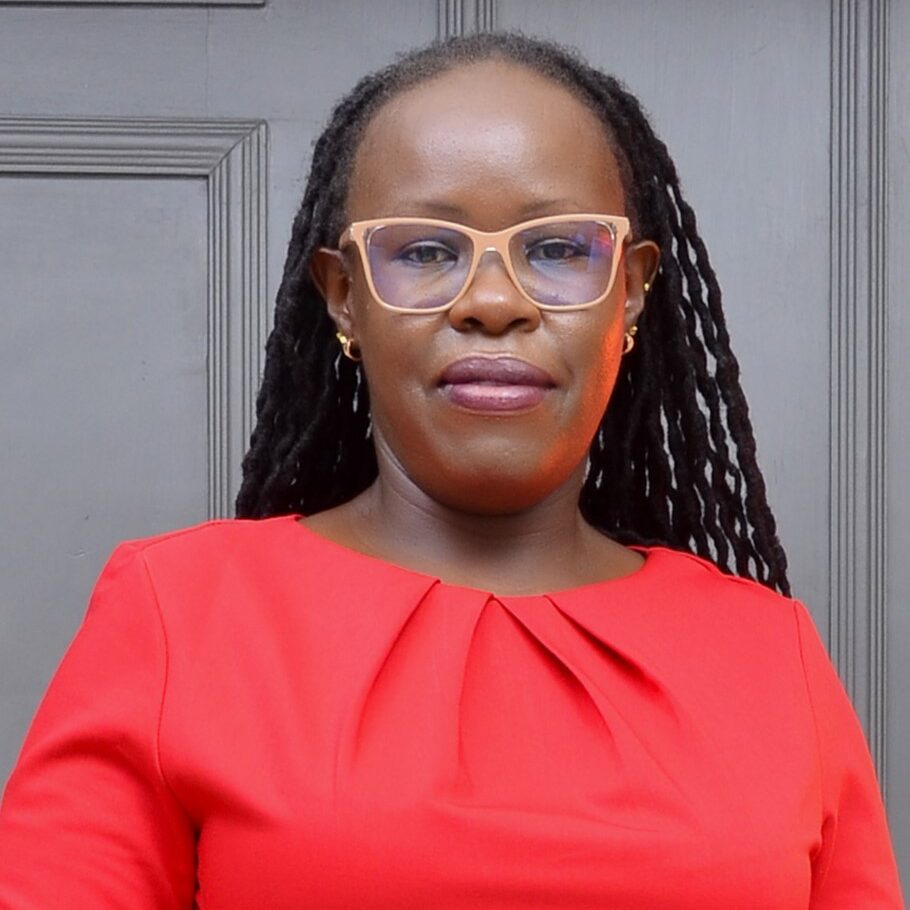
Kenya is affected by climate change just like many other countries globally leading to rising temperatures and recurrent disasters over the years. Kisumu county which is one of the 47 counties in Kenya is highly vulnerable to climate change. The climate risks faced include drought, flooding, rise in lake level and elevated temperatures.
This study was informed by the perennial floods occurring in parts of Kisumu County that cause loss of property, housing, lives, livelihood and damage to infrastructure. In the recent floods that occurred in April 2023, 2,700 households were displaced due to flooding in Kisumu County. This points to the importance of early warning systems (EWS) which if incorporated into developmental planning, disaster relief and recovery presents a vital opportunity for reducing the risk of disaster occurrence, losses in livelihood, social, environment and health thereby achieving sustainable development goals.
The aim of this research is to assess the barriers to accessing early warning messages and to evaluate the factors hindering understanding and inclusivity of early warning messages. The study will be carried out in Kolwa East Ward, Kisumu County which is chronically affected by flooding due to inadequate EWS among other factors. The floods result in displacement of the community, damage to houses, social disruption, loss of lives and livelihoods. This study will use focus group discussions to gather lived experiences of the community on the impact of flooding and early warning systems. In addition, key informant interviews will be conducted with selected key officers from the Kisumu County government departments, non-governmental organizations, community-based organizations, community disaster management committee, community health volunteers, village elders and ward administrators. Data will be analysed through thematic analysis.
To undertake this project, I have partnered with Dr. Lydia Olaka, a Senior Lecturer from the Technical University of Kenya. Her research interest and expertise is in Environmental Geology, Climate Change Impact on water resources and application of geospatial analysis techniques for hazard mapping.
The other partner is Mr. Evans Gichana, Director, Climate Change, Kisumu county. He is a specialist in climate change. He is responsible for directing climate actions and policy development in Kisumu county.
Findings from this study will inform integration of indigenous and scientific knowledge to develop an early warning system (EWS) that is people-centred and effective. Involvement of community is a crucial component when developing an EWS so as to ensure inclusivity and informed participation of the community in the design and implementation process. Further this knowledge will help in improving or building the resilience of the community to climate change. The community living in the flood prone areas will use this information for planning and implementation of strategies that will increase their ability to endure and recover from disasters. The perennial occurrence of floods has left the community in Kolwa ward trapped in a cycle of poverty due to the destruction of livelihood activities as well as assets.
An effective early warning system will be vital in helping the community take timely actions and decisions thereby enhancing public safety and reducing loss of lives or injuries that occur as the displaced communities move to evacuation centres. The knowledge generated from this study will also inform disaster management and relevant policy so that there is a shift from reactionary policies and management to proactive policies that aim at minimizing disaster risks and also will help the county government with effective resource allocation especially for responding to potential disasters.
Max Martin, India
Institution: University of Sussex
Research Project: Fishers on the first mile: early warning early action on the Arabian Sea coast of south India
About the Researcher: Max Martin is a geographer affiliated with the University of Sussex and is a member of a research team that looks at forecasts at different timescales streamlined with the metrics of early warnings and early action. Their research primarily focuses on studying climate and extreme weather and how people act on forecasts and early warnings. Notably, Max's recent research tested localized weather information co-produced with fishers and forecasters on the southwest Indian coast of the storm-prone Arabian Sea.
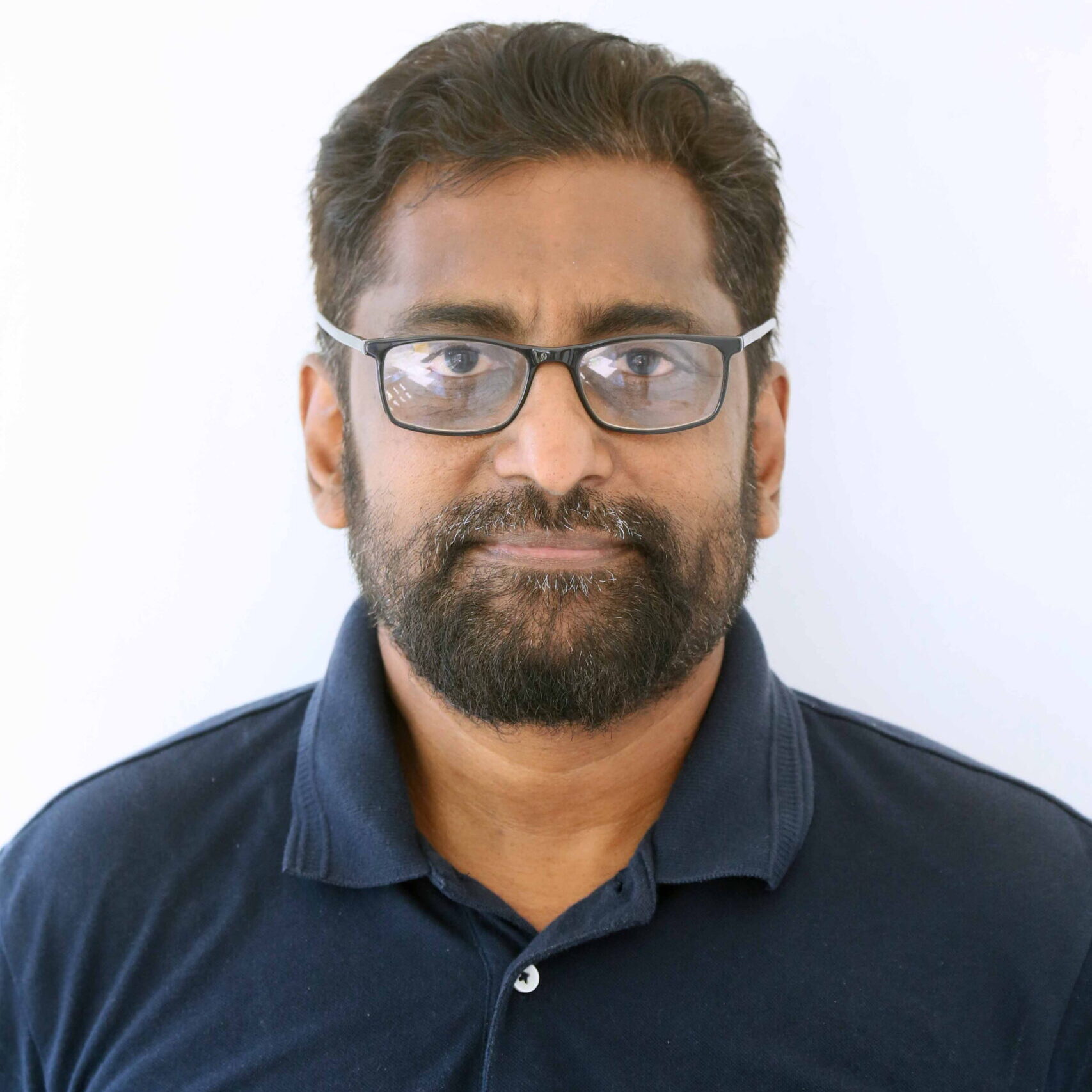
Changes and uncertainties in weather make artisan fishing risk-prone. The research tests the actionability of early warning messages for fishers and factors that influence their effective use within local socio-economic and cultural contexts. The methods will include an ethnographic study in Thiruvananthapuram district of south India. Informed by forecasts and observations, the study will probe fishers’ exposure to weather extremes, their impacts, and the action taken based on early warning.
Dominic Kniveton is Professor of Climate Change and Society at Sussex. His research spans issues of development, climate change, disaster risk, migration and health. He is the advisor to this project.
Aaditeshwar Seth is a Professor in the Department of Computer Science and Engineering at the Indian Institute of Technology Delhi. He works on natural resource management for community-based development, and information-sharing systems in low-literacy environments. His startup Gram Vaani supports early warning dissemination for this project through the local community narrowcast Radio Monsoon.
R Harikumar is Scientist-E at the Indian National Centre for Ocean Information Services. His research areas include ocean state forecasts, observing the ocean, ocean modelling and process studies, and rain and cloud physics.
Fishers of southwestern India operate at 0–50 nautical miles from the shore, often exposed to extreme weather and accidents. The research will probe whether they can take preventative action based on early warning. It will contribute to better early warning information and different components of early action.
Olumuyiwa Adegun, Nigeria
Institution: Federal University of Technology, Akure
Research Project: Slum Dwellers’ Utilization of Heat Early Warning Resources in Nigeria
About the Researcher: Olumuyiwa Adegun is Senior Lecturer in the Department of Architecture at Federal University of Technology, Akure, Nigeria. His scholarly interests focus on environmental sustainability and climate adaptation in urban areas of Nigeria and other parts of sub-Saharan Africa, especially with respect to low-income housing, slums and informal settlements.
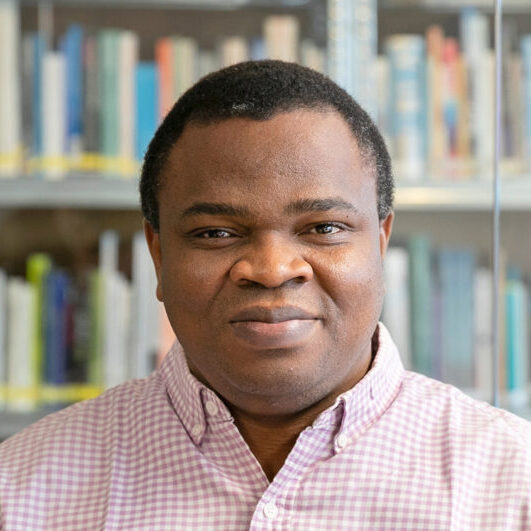
Our study will evaluate utilization of current early warning resources and identify access barriers by slum residents in Akure and Lagos, Nigeria. We will co-design, trial, and assess a Community Heat Early Warning System tailored to slum communities. It seeks to ensure inclusion, local sensitivity and extended usefulness of heat warning information to last mile communities in cities.
My co-investigators on this research are Dr Tobi Morakinyo, Assistant Professor (Urban Climatology), University College Dublin, Ireland and Dr Peter Elias, Associate Professor (Urban Geography), University of Lagos, Nigeria.
The research seeks to empower vulnerable urban settlements by enhancing their preparedness for extreme heat events, strengthening their resilience, and fostering the adoption of community-based early warning systems.
Pradytia Putri Pertiwi, Indonesia
Institution: Universitas Gadjah Mada
Research Project: POP IDEAS (Perspectives of Persons with Disabilities on Inclusivity and Actionability of Disaster Early Warning Systems)
About the Researcher: Pradytia Putri Pertiwi has focused on disability-inclusive disaster risk reduction (DIDRR) for nearly 15 years, specializing in working with persons with disabilities and their representative organizations (OPDs). Combining her roles as an academic and a practitioner, she conducted an assessment of the progress made in including persons with disabilities in DRR to inform co-creation of knowledge and evidence-based innovations in this area. Pradytia has authored scholarly articles and contributed to various global and regional studies on DIDRR and humanitarian action, including the 2023 UNDRR's Global Survey on Disability and Disasters.
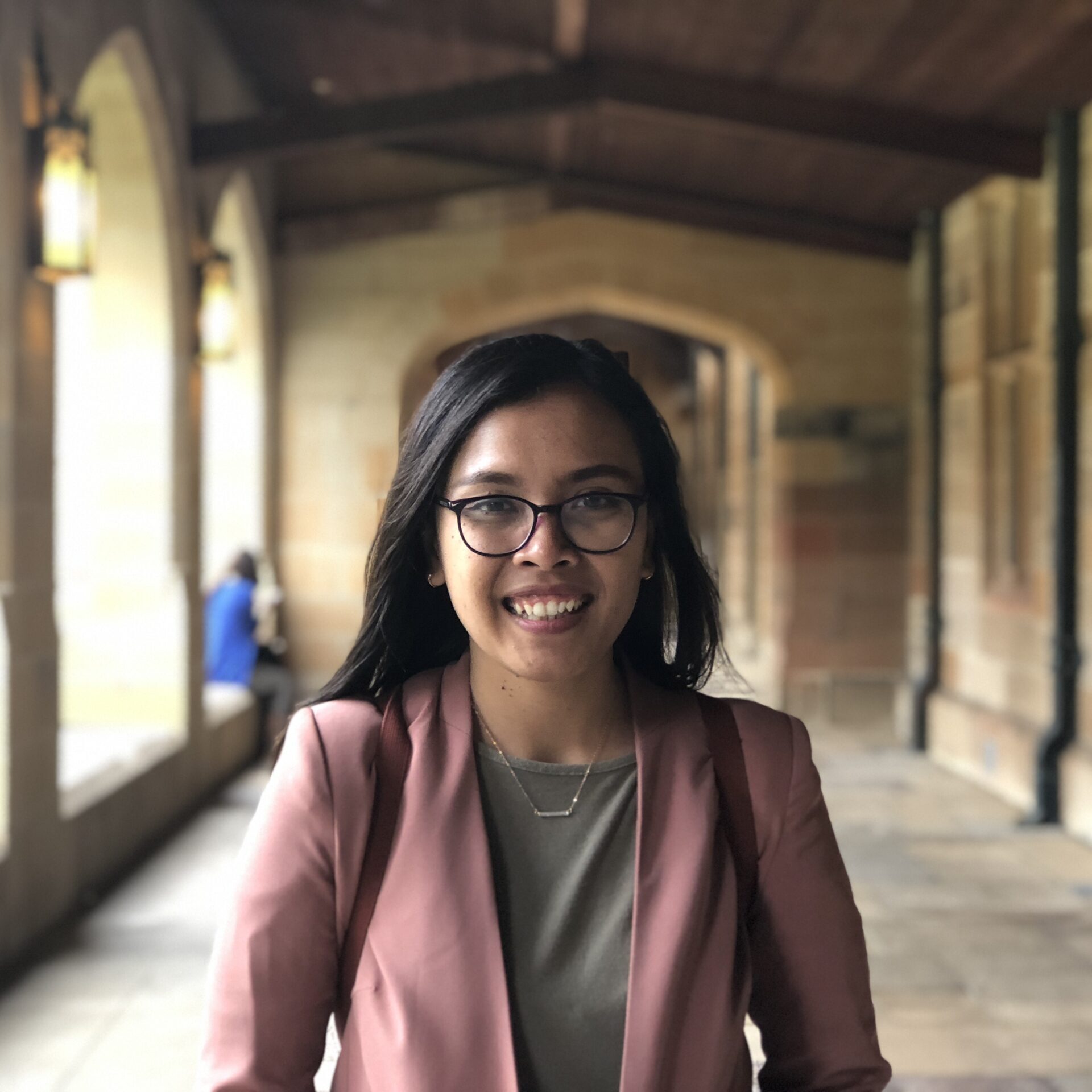
Persons with disabilities are up to four times more likely to be victimized in disaster situations. Access to early warning systems was repeatedly reported to increase the likelihood of persons with disabilities' capacity to cope with disasters. Nevertheless, how have persons with disabilities been able to access and act on early warning messages, and what would be the resource implications of this action are rarely investigated. Using case studies of 2 local communities at-risk of volcanic eruption in Indonesia, this study aims to understand inclusivity and factors influencing actionability of early warnings from the perspectives of persons with disabilities. Specifically, the study will estimate resource implication of persons with disabilities' early action to early warning messages. Utilizing a participatory design, this study will involve persons with disabilities in accessibility review, data collection and analysis, exploration of inclusive early-action and its resource mobilization assessment, and dissemination of findings to stakeholders and decision makers.
In this study, I will partner with Dr Mizan Bisri, Assistant Professor of Kobe University and principal of Cerdas Antisipasi Risiko-bencana Indonesia(CARI!), specializing in hazard and vulnerability analysis, to support estimation of resource consequences of persons with disabilities acting on early warning messages.
Difagana, an entity led by persons with disabilities disaster volunteers, will also involve as co-researchers and advocate to ensure inclusion process of this study and wider influence of the study findings.
The study aims to understand inclusivity and factors influencing actionability of early warnings from the perspective of persons with disabilities. Specifically, the study will attempt to estimate potential resource implications of early action by persons with disabilities responding to early warning messages. Expected outputs of this study are:
- Comprehensive review of the inclusivity of EWS and recommendations for improvement.
- Detailed account of feedback on inclusivity and actionability of current EWS from the perspectives from persons with disabilities including calculation of resource implications of early action by persons with disabilities responding to early warning messages.
As such, the study will contribute to ensuring enabling environment for persons with disabilities to behave safely in disasters, particularly establishing accessible early warnings and adequate supports for persons with disabilities to take early action in disaster situations.
Rafael Pereira, Brazil
Institution: University College Cork
Research Project: Enhancing People-Centred Early Warning Systems (PCEWS) in Traditional Coastal Communities of Brazil: an intersectional approach to inclusive risk communication strategies
About the Researcher: Rafae is a PhD student (IRC Scholar) in the Department of Geography at University College Cork, Ireland. He has experience in co-creation and community-based approaches, particularly in citizen science, disaster risk reduction and climate adaptation projects. He graduated from the University of Sao Paulo, Brazil with a BSc (Hons) in Environmental Management. Previously, Rafae worked as a researcher at the National Centre for Monitoring and Early Warning of Natural Disasters (CEMADEN) and was a member of the CoAdapta Litoral project, which promotes collaborative research with traditional and local communities from coastal areas of Brazil on climate resilience and adaptation strategies.
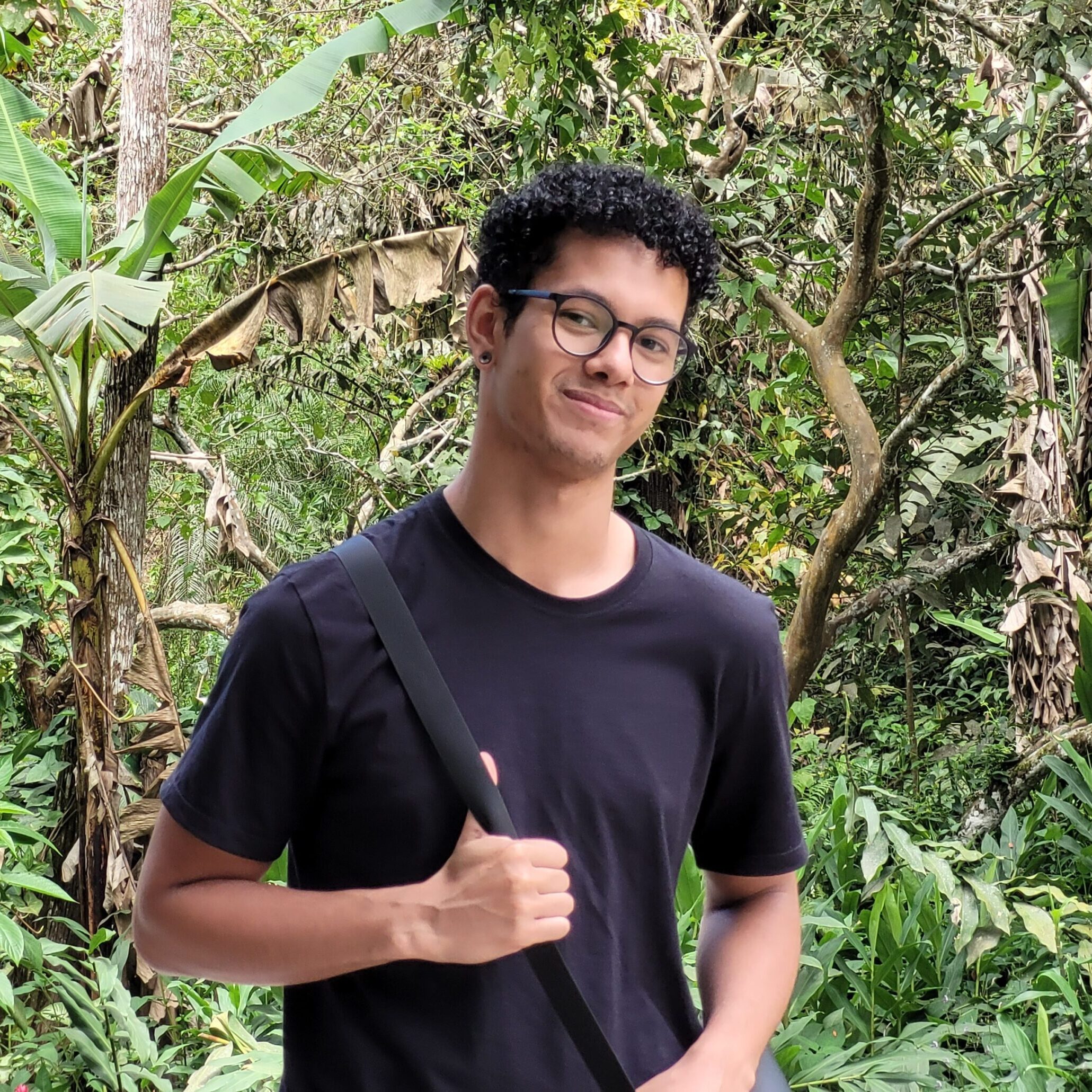
This research project investigates the effectiveness of early warning systems (EWS) in vulnerable coastal communities in south-eastern Brazil. The research team will integrate data from participatory workshops and official databases to identify losses and damages caused by recent disasters and to assess the performance of warning dissemination and communication at the local communities. Based on the findings, the project will develop recommendations on how to improve risk communication while considering people's needs and capabilities, and to improve the inclusiveness, accessibility and response to early warnings in the face of recurrent climate disasters in the coastal region.
- Allan Iwama (supervisor) is an environmental Engineer with MSc in Remote Sensing at INPE and PhD. In Environment and Society at UNICAMP/NEPAM. Currently he has been working on research projects in climate change and adaptation, disasters risks, land use-cover change, citizen science and participatory approaches - social cartography, research-action and participatory GIS.
- Luciana Londe holds a PhD in Remote Sensing from the National Institute for Space Research - INPE (2008), a Master's degree in Agricultural Engineering (Water and Soil Concentration Area) from the State University of Campinas - UNICAMP (2002), specialization in Environmental Health Surveillance - UFRJ (2014 ), graduation (Bachelor and Full Degree) in Biological Sciences from the Federal University of Uberlândia - UFU (1997) and in Sociology (Unitau, 2020). She is currently a Researcher at CEMADEN National Centre for Monitoring and Early Warning of Natural Disasters.
- Miguel Angel Trejo-Rangel is a Postdoctoral Researcher working with Prof. Conor Murphy on the ORICA project at the IRACUS Climate Research Centre - Maynooth. He holds a Ph.D. in earth system science from the National Institute for Space Research in Brazil, an Erasmus Mundus master's degree in water science and engineering - specialization in flood risk management from UNESCO-IHE, and a bachelor's degree in sustainable management of coastal areas from the National Autonomous University of Mexico
- Danilo Pereira Sato PhD candidate in the Human Geography Program at the São Paulo University (USP). His research covers the environmental planning, public policies and sustainability fields. Danilo participated in the USP's Advanced Studies Institute (IEA) Census Project of the Culture and Science Chatedra and had a 6 months guest research period at the Working Group Development Studies and Sustainability Science (AGEF) at the Innsbruck University.
- Indira Angela Luza Eyzaguirre is a researcher at the Mangrove Ecology Laboratory of the Federal University of Pará. She is an Environmental Engineer, Master in Environmental Biology. She has experience in climate change, environmental and climate governance, Sustainable Development Goals (SDGs), ecosystem services, citizen and participatory science with participatory GIS tools, mapping with open access tools and participatory methodologies.
Our diverse research team comprises key actors, including traditional community leaders, scientists, policymakers, international partners, and students, all with extensive expertise in DRM, hazard monitoring, disaster education, and climate change impact analysis.
In essence, this study aims to bridge the gap between science and society. The ultimate goal is to promote collective responses to the impacts of climate-related disasters by integrating scientific knowledge and the memories, wisdom and perceptions of traditional and local community members into the research process. In particular, it actively promotes capacity building in the use of digital technologies, thereby empowering directly affected people to take the lead in their own climate adaptation efforts. The study also contributes to disaster the development of localized, empirically-grounded risk communication strategies that meet the specific needs of communities in disaster-prone areas.
Rhomir Yanquiling, Philippines
Institution: University of Melbourne
Research Project: Enhancing Accessibility and Actionability of Early Warning Messages among Last Mile Mountain and Coastal Communities in the Philippines
About the Researcher: Rhomir Yanquiling is a policy researcher working on the interface of environmental justice, climate change, water governance and sustainable development. He has been a Climate Adaptation Finance Fellow (Frankfurt School of Finance and Management/Thailand Development Research Institute/IDRC) and a Keizo-Obuchi Research Fellow (UNESCO-Japan). He was also chosen to participate in the 2019 SWITCH-ASIA Circular Economy Leadership program jointly administered by the UNEP and Tsinghua University (Beijing, China) and the 2019 Accountable Resource Governance in Asia-Pacific by the Natural Resource Governance Institute (NGRI) and Gadja Mada University (Jakarta, Indonesia).
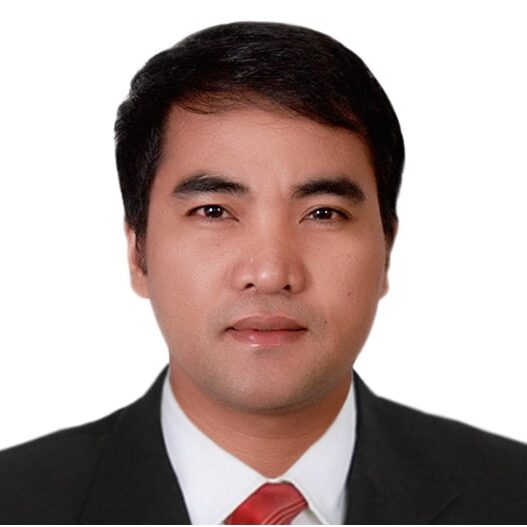
This study adopts a comparative approach to identify barriers and factors affecting early warning message accessibility and actionability among last mile mountainous and coastal communities in the Philippines. The study explores how these communities have evolved over time and space in adjusting to the barriers in accessing early warning messages, the preventative actions (or inactions) taken, and factors influencing their actionability. Data collection involves surveys, interviews, digital ethnography, and participatory action research with community members and stakeholders. Findings will inform disaster risk reduction policies, fostering inclusive and action-oriented strategies for vulnerable populations during extreme weather events.
The Philippines faces a significant risk of disasters, ranking first among countries worldwide, according to the 2022 World Risk Report. The study helps address the critical issue of vulnerability among the poorest segments of population in mountain and coastal villages, as these communities often suffer the most severe consequences of disasters and have limited access to essential resources and services. By understanding the barriers to accessibility and inclusivity of early warning messages, I aim to bridge the gap and ensure that these marginalized groups are not left behind in disaster preparedness and response effort.
Sipho Felix Mamba, Eswatini
Institution: University of Eswatini
Research Project: Utilization of early warning information and the factors influencing actionability of early warning messages among last mile communities in drought-prone areas in Eswatini
About the Researcher: Dr Mamba is a senior lecture and researcher in the University of Eswatini (Swaziland), Department of Geography, Environmental Science and Planning. Mamba is a Human Geographer with a PhD in Geography and Environmental Science (specializing on Climate change and food security). He is vice president of the Young African Statisticians Association (YASA) and a member of the Eswatini Vulnerability Assessment Committee (ESVAC) core team and Eswatini Focused-Based Financing (FbF) technical team. He is also a member of the Food Security Network (FSN).
Dr Mamba has skills and expertise in land and water resources management, socio-cultural and developmental research, food security, urban livelihoods, climate change, urban and human geography. He is an editor and reviewer of different academic journals and has carried out research on climate change and food security issues, agriculture, poverty and urban livelihoods as well as environmental related issues.
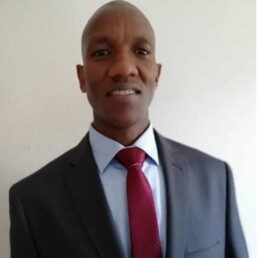
The study explores the utilization of early warning information and the factors influencing actionability of early warning messages among last mile communities in order to increase their resilience against drought impacts and shocks in the drought prone areas of Eswatini. It seeks to understand if marginalized farming communities utilize early warning messages and if they are able to take preventive actions which are informed by early warning messages, and the factors that influence the actionability of received early warning messages among last mile communities in drought prone areas.
- Sizwe Mabaso. Dr Mabaso is a senior lecture and researcher in the University of Eswatini (Swaziland), Department of Geography, Environmental Science and Planning (HoD). He is a GIS specialist with extensive experience in GIS and Remote Sensing, Cartography and Surveying. Dr Mabaso has experience in land and water resources management, environmental monitoring and data management. He has worked extensively on environmental interventions, monitoring and planning and is also a greenhouse gases (GHGs) national expert for the Agriculture, Forestry and Land Use (AFOLU Sector).
- Samkele Thwala. Dr Thwala is a senior lecture and researcher in the University of Eswatini, Department of Geography, Environmental Science and Planning. He is a soil and water engineer with research interest and expertise in numerical modelling of sediment dynamics and morphology in rivers and artificial intelligence in hydrology. His research spans a wide range including eco-hydraulics, climate change and the environment, integrated land use management, inundation, and flooding vulnerability and risk assessment.
- Nosizo Mthupha. Ms Mthupha holds an MSc. Degree in Environmental Resources Management (ERM) with experience in DRR research, vulnerability assessment and analysis and rural livelihood research (livelihood programming & food security). She is a key facilitator and lead of the country’s Annual Vulnerability Assessment (a key member of the Vulnerability Assessment Committee (VAC)) and currently serves as Disaster Commodities Manager responsible for parner engagement and coordination in developing resilience building initiatives and climate risk management strategies for Eswatini in the Disaster Department in the Deputy Prime Minister’s Office (DPMO), Eswatini (Swaziland), MSc. Disaster Department, Deputy Prime Minister’s Office (DPMO), Eswatini (Swaziland)
This research comes timeously and offers an opportunity for the advancement of the country’s national drought plan which operationalizes the Sendai Framework for Disaster Risk Reduction (2015-2030) for resilience building and proofing of livelihoods for the largely marginalized last mile communities of Eswatini. Empirical evidence from this research will be critical to motivate for evidence-based policy reform towards proactive (rather than reactive) climate change interventions in Eswatini to reduce the country’s vulnerability to climate stressors exacerbated by the changing climate landscape.
It is hoped that by interrogating the factors that influence actionability and utilization of early warning information, last mile farming communities in Eswatini can take timely and effective actions to reduce their exposure to drought risks, proof their livelihoods and increase their resilience against drought shocks.
Tara Ballav Adhikari, Nepal
Institution: Aarhus University
Research Project: Understanding Barriers to Healthcare Access for people living with NCDs during Disasters in Nepal
About the Researcher: Dr. Tara Ballav Adhikari is a public health professional focusing on global health and non-communicable diseases (NCDs) research. He holds PhD in Public Health from Aarhus University, Denmark, and has contributed to understanding the burden of NCDs in Nepal and designing interventions for their prevention and management. Adhikari's research has explored various topics related to NCDs, spanning from prevalence studies to interventions. His work encompasses chronic respiratory diseases, hypertension, diabetes, cardiovascular diseases, and mental health. With over a decade of professional experience, he's passionate about evidence-informed public health practices. His focus includes developing interventions and using new media/technology to enhance health and well-being in resource-limited settings.
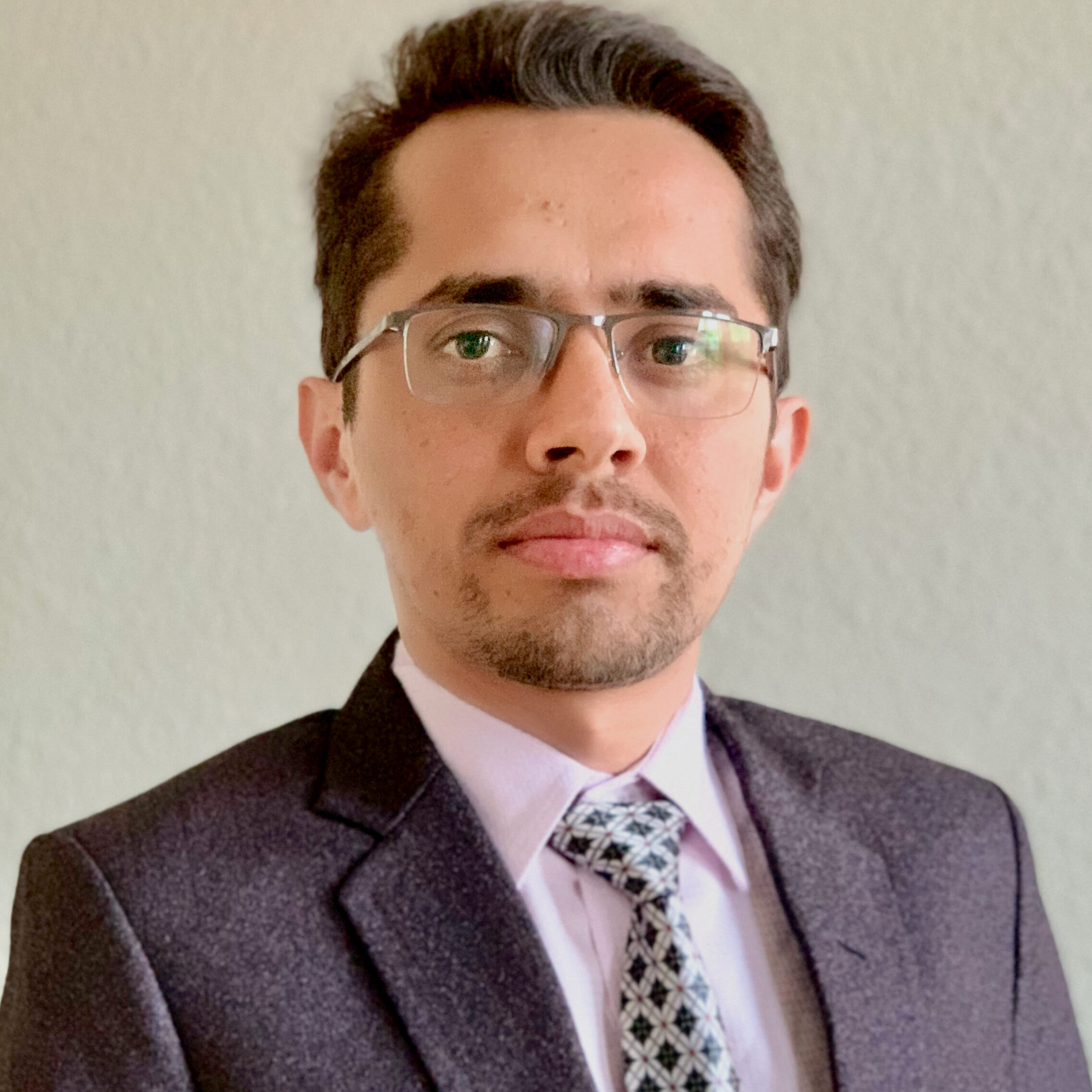
In Nepal, non-communicable diseases (NCDs) have become the primary cause of death, accounting for two-thirds of all mortalities. The country is also susceptible to frequent natural hazards, including epidemics, earthquakes, floods, and landslides, exacerbated by the impact of the climate emergency and environmental concerns like pollution. This situation creates a crisis within a crisis, leaving individuals with NCDs vulnerable during disasters, with increased risk leading to life-threatening situations. Addressing these challenges and ensuring their awareness of emerging risks demand proactive measures. In this context, our study aims to investigate and identify the barriers faced by individuals living with NCDs in accessing healthcare services and early warning messages during disasters.
This project will be implemented in close collaboration with the Canadian Red Cross (CRC), Danish Red Cross (DRC), Nepal Red Cross Society (NRCS), and research organizations Nepal Development Society and Nepal Health Frontiers leading in NCDs research in Nepal.
The knowledge generated from this study will benefit both individuals and society as a whole. By understanding the specific barriers faced by individuals with non-communicable diseases (NCDs) in accessing healthcare services and early warning messages during disasters, the research contributes to the development of targeted and effective interventions. This insight can lead to informed policies that enhance disaster preparedness, reduce risks, and improve the overall resilience of healthcare systems in Nepal. Ultimately, the study aims to mitigate the increased vulnerabilities of people living with NCDs during crises. The societal impact extends to promoting more equitable and inclusive emergency response systems, empowering communities, and contributing valuable insights to the broader field of global health.
Topic 2: Strategies to improve accessibility and actionability of early warning messages among last mile communities
Abdul Rohman, Vietnam
Institution: RMIT University Vietnam
Research Project: Toward a more inclusive EWEA messaging for the Deaf and Hard of Hearing (DHH) in Vietnam
About the Researcher: Abdul Rohman is a senior lecturer in the School of Communication and Design at RMIT University Vietnam. He is the author of ‘Conflict, Continuity, and Change in Social Movements in Southeast Asia’ (Routledge, 2022). His research interest revolves around the impact of digital and social media platforms on social change in Indonesia and Vietnam. His latest projects intersect social media and disability movements in the two countries, and civil society groups’ resilience during COVID-19 pandemic in Southeast Asia.
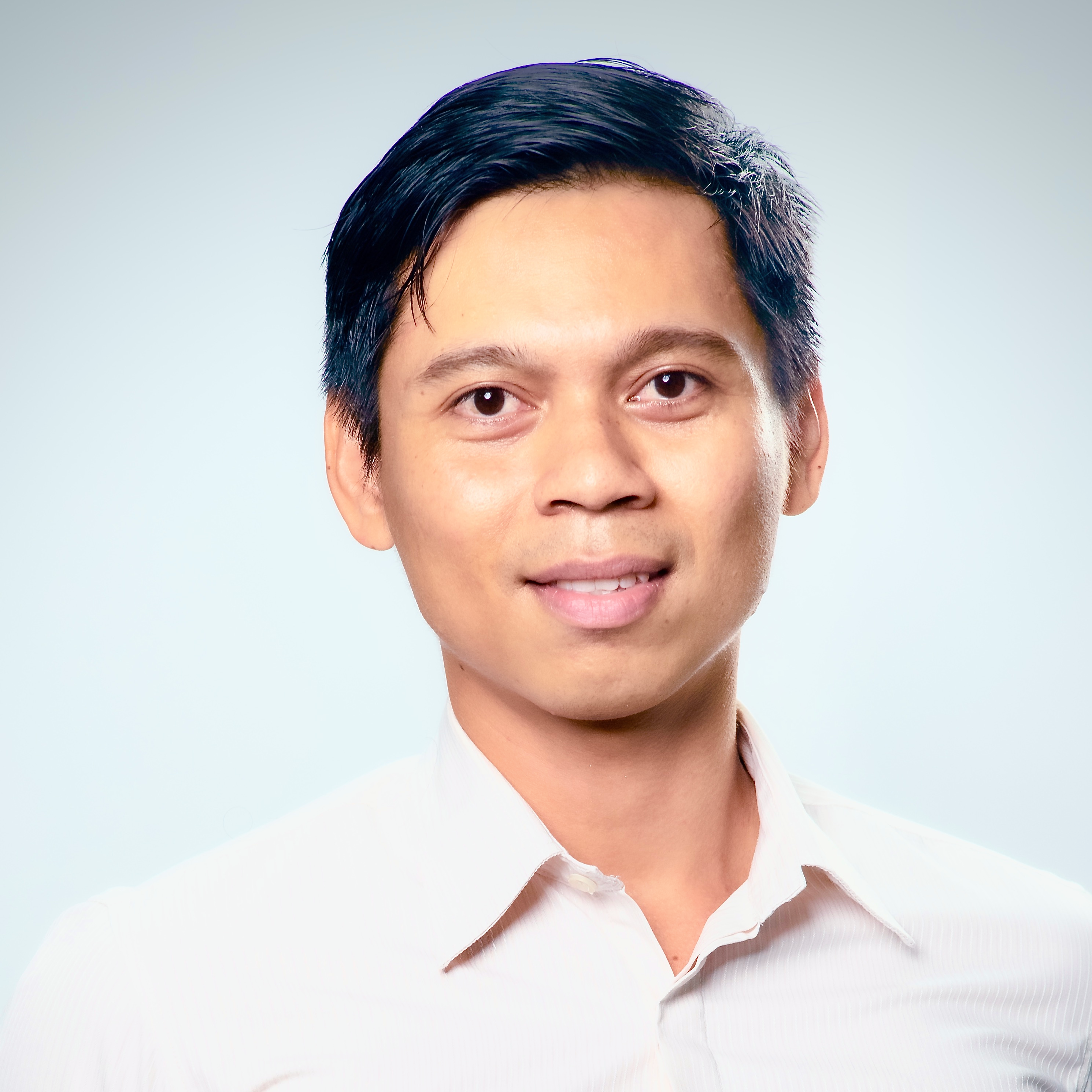
This research project aims to assess the inclusivity of the existing early warning early action (EWEA) messaging strategies and formats for those who identify themselves as Deaf or Hard of Hearing (DHH) in Vietnam. In tandem, the intent is to document the extent to which the DHH community is able to exercise their agency and grow while organically generating EWEA content catered to the community and maximizing existing EWEA systems.
Phương Nguyễn, Independent Living Center, Hanoi
Nang Moi, Ho Chi Minh City
The research findings hold the potential to strengthen the effort to make EWEA messaging more inclusive, primarily to the DHH community. In addition, the findings are promising for providing DHH communities in other Southeast Asian countries (e.g., Indonesia and Philippines) with insights as to how to develop and disseminate their community-based solutions in response to the persistent exclusionary approaches to disaster risk reduction, response, and recovery plans. Furthermore, it has the potential to strengthen the regional network among DHH communities.
Deolfa Jose Moises, Namibia
Institution: University of the Free State
Research Project: Towards Participatory Flood Early Warning for Early Action: A Situational Analysis of the Zambezi and Kavango Regions - Namibia
Deolfa Jose Moises, a PhD candidate at the University of the Free State, specializes in Disaster Management and possesses a diverse academic background in Integrated Water Resource Management, Microbiology, and Biochemistry. Her extensive research experience provides a deep understanding of the socio-economic, environmental, and political aspects of African nations in the context of sustainable development and global standards.
Deolfa excels at synthesizing scientifically sound reports, offering technical expertise, and devising system dynamic approaches to address developmental challenges. Deolfa is well-equipped to support the strategic review and development of inclusive, multi-faceted and sustainable development program activities from design through implementation.

This study explores rural communities’ socio-economic and environmental conditions for capacities that can be exploited for improved flood risk reduction. The social, economic and environmental construct of communities formulates the core of the resilience capacity paradigm, which requires great consideration when developing, implementing and strengthening flood early warning systems.
Considering all these factors the study seeks to develop a strategy for impact-based early warning communication by consolidating and leveraging existing knowledge systems, skills, tools and resources from the current technocratic system and ongoing local efforts to better align with and respond to community needs. The study seeks to develop system whereby warnings generate effective early response and early action by ensuring that they reach the relevant individuals timeously and with directives for right action, essentially bridging the last mile within rural, remote and often poorly developed African communities.
- Dr Yong Nyam - Consultant at the World Bank Group: Urban, Disaste Risk Management, Resilience and Land Global Practice
- Mr Obankeng Selelo - MSc. Agricultural Econonomics
- Mr Valks Mayamba - Disaster Risk Officer (IFRC Namibia)
- Mr Joachim Komeheke - MSc. Environmental Management
The study highlights the significance of systems thinking approaches in developing and implementing multi-faceted DRR approaches like early warning systems. By providing an approach to asses unique local contexts and providing practical pathways for community engagement, the study benefits both policymakers, DRR practitioners and communities by ensuring the means of implementation are clearly defined and positively benefit target communities from the planning stages of the early warning process.
Ita Bonner, Albania
Institution: Agricultural University of Tirana (AUT)
Research Project: Bridging the gap – Investigating barriers and enhancing resilience in last mile communities through inclusive early warning strategies in rural Lezha, Albania
About the Researcher: Ita Bonner, PhD (c), is an environmental security researcher with more than 10 years of experience. She is currently pursuing her research on the impacts of climate change within the Albanian defense sector and civil protection system.
Ita's scholarly achievements extend to her role as an Adjunct Professor at the AUT in Albania, where she also continues investigating critical issues related to desertification and food insecurity in the Mediterranean region. During her career, Ita has worked as an expert in national and international projects, on multiple assignments, including the evaluation of various public programs, the assessment of governmental and international interventions in Albania, co-authored DRR strategy at the municipal level, etc. In addition, Ita has authored various research articles and contributed to high-impact assessments and research reports.
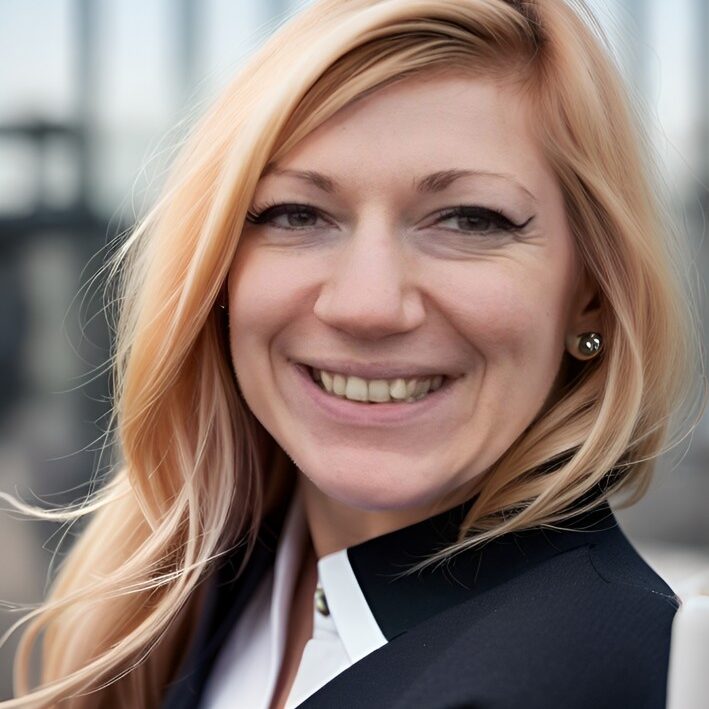
This research aims to understand how rural communities in Lezha County, Albania, can better prepare for disasters, including accessing, comprehending, and acting on early warning information. The research will focus on investigating the current setup of the early warning system at the regional level, as well as the challenges rural communities face in receiving and understanding early warnings.
The study will employ mixed methods of qualitative and quantitative evaluation among a diverse group of participants from Lezha County rural communities, which will allow suggestions for changes in policies and strategies at the local and national governments, other public agencies, and other organizations. This research goal is to make early warning systems more inclusive and accessible, helping vulnerable communities be safer in emergencies.
- Prof. Dr. Endrit Kullaj – Head of the Department of Horticulture and Landscape Architecture, Faculty of Agriculture and Environment, Agricultural University of Tirana; Editor-in-Chief of Albanian J. Agri. Sci.
- Françeska Korançe PhD (c) – GIS Expert, researcher, and lecturer at the Environment and Urban Planning Department, Polis University, Albania; Executive Director at Build Green Group
Insights from this research will enhance disaster preparedness, aiding vulnerable rural communities, by adapting policies and strategies at the local and national governments. This helps vulnerable communities stay safer during emergencies. The short-term result of this research is to create positive, lasting changes in disaster preparedness for communities in rural areas in Lezha District, Albania, with the potential for a wider impact nationally. In the long term, this approach could be used in other areas at the national level, making a positive and lasting impact on the well-being of rural communities in Albania.
Shampa, Bangladesh
Institution: Bangladesh University of Engineering and Technology
Research Project: Community-led EAs on rapid-onset FF events in North-Eastern Bangladesh
About the Researcher: Shampa is an Assistant Professor at Bangladesh University of Engineering and Technology's Institute of Water and Flood Management (IWFM). Her research interests include computational fluid dynamics, sediment transport, and remote sensing. Her most recent focus has been on developing impact-based Early Warning Systems to facilitate Early action.
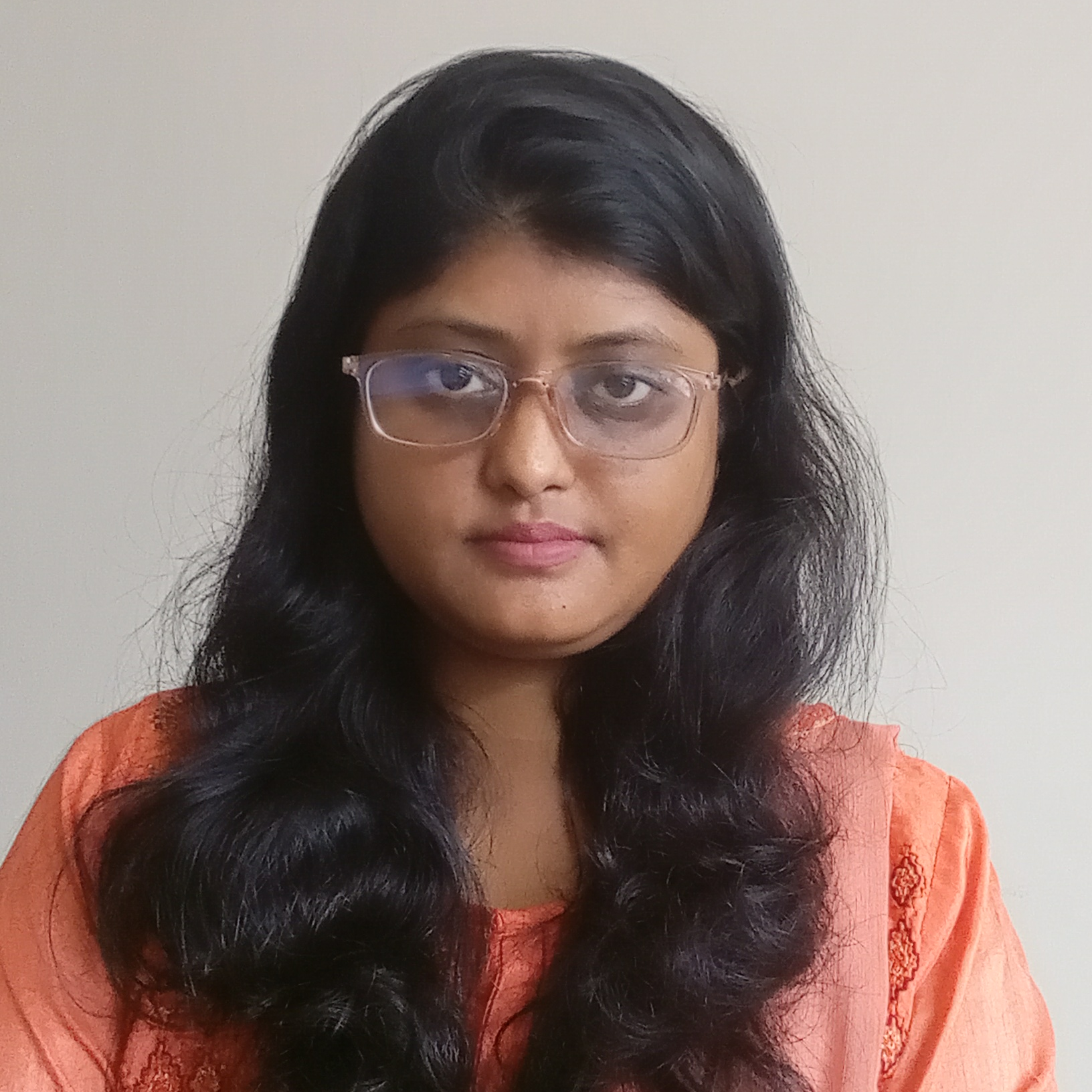
Tell us more about your research project: Early action (EA) based on warning can save more lives and minimize impacts on communities during emergencies and recovery stages. However, the availability of early warning does not guarantee EA. This study aims to investigate community-led EAs on rapid-onset Flash Flood events in North-Eastern Bangladesh, with specific objectives to examine how community-developed solutions can enhance accessibility, actionability and inclusivity of Early Warning Messages, and how that can be improved through policies and interventions by authorities.
- Dr. Sonia Binte Murshed. Sonia is an Associate Professor at the Institute of Water and Flood Management of Bangladesh University of Engineering and Technology. Her research focuses on the hydromorphological changes due to human interventions, allocation of freshwater resources among competing users and adaptation strategies to natural hazards. Recently she has been trying to study and understand these issues from transboundary perspectives.
- Prof. Mashfiqus Salehin. Salehin is a professor of hydrology and interdisciplinary water resources management at IWFM, BUET. During his 27-year academic career at BUET, Salehin’s research activities have focused on hydrologic modeling at regional (Ganges-Brahmaputra-Meghna basins) scale and national/catchment levels, hydrogeologic analysis and modeling of groundwater and saltwater intrusion, mechanisms of flood disasters, flood vulnerability and risk analysis, post-flood recovery and resilience, and transboundary water management. His research also includes application of interdisciplinary approaches to analyzing different uses of water resources, biophysical vulnerability and implications to water and food security, and integrated assessment for coupling natural (biophysical) and human (socio-economic processes and livelihood/ well-being outcomes) systems.
- Dr. Erin Coughlan de Perez. Erin joined Tufts University as an Associate Professor in March of 2021, after working almost 10 years with the Red Cross Red Crescent Climate Centre. Her PhD was focused on Anticipatory Action; analyzing the skill of weather and climate forecasts to predict disasters, and setting thresholds for early action. She is an author of the upcoming IPCC report on climate change; she also studies extreme weather events around the world.
The research seeks to empower vulnerable urban settlements by enhancing their preparedness for extreme heat events, strengthening their resilience, and fostering the adoption of community-based early warning systems.
Tirsit Sahledengle Beyene, Ethiopia
Institution: Addis Ababa University
Research Project: Community Developed Solutions to Early Warning Early Action in Ethiopia: The Case of Last-Mile Communities in South Omo
About the Researcher: Tirsit Sahledengle is an Assistant Professor of Social Anthropology at Addis Ababa University in Ethiopia. She obtained her PhD in Dynamics of Interaction between Refugees and Host Communities in Western Ethiopia along the Ethio-Sudanese border. Tirsit's research interests primarily revolve around gender, forced displacements, peace and conflict dynamics, as well as social cohesion.
Throughout her career, Tirsit has actively participated in various national and international research projects, assuming roles such as coordinator, lead researcher, and team member. Her contributions have been instrumental in advancing knowledge and understanding in the fields of gender, conflict, and refugee studies.
For further inquiries or collaboration opportunities, Tirsit can be reached at: tirsit.sahledengil@aau.edu.et.
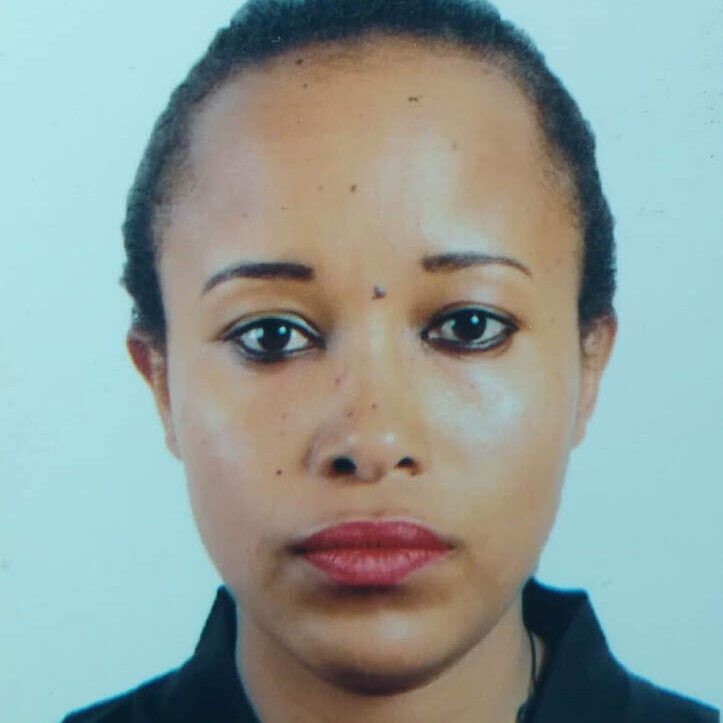
This proposed research aims to investigate the effectiveness of early warning activities carried out by pastoralist communities in the South Omo Zone, with a specific focus on their response to climate change-induced natural disasters. The study seeks to identify the strengths and weaknesses of existing early warning systems and explore strategies to enhance their effectiveness.
The research will begin with a comprehensive review of existing literature on early warning systems, climate change impacts, and pastoralist communities in the South Omo Zone. This will establish a baseline understanding and reveal gaps in current knowledge.
Fieldwork will then be conducted within the South Omo Zone, directly engaging with pastoralist communities. Through qualitative methods like interviews and focus groups, the research will document current early warning practices, characterize existing systems, and assess their effectiveness in allowing communities to prepare for and mitigate impacts of climate disaster events.
The research team includes two other people from my department:
- Dr. Desalegn Amsalu, Associate Professor at Addis Ababa University, who brings expertise in pastoralist livelihoods and climate change adaptation.
- Netsebrak Tamene, PhD candidate at Addis Ababa University, who contributes knowledge of indigenous early warning systems and community-based disaster risk reduction.
The research findings will be disseminated through reports, presentations, and workshops targeting key stakeholders such as local communities, government agencies, non-governmental organizations, and academic institutions. The aim is to raise awareness, promote knowledge sharing, and facilitate evidence-based decision-making to enhance the resilience of pastoralist communities to climate change-induced natural disasters.
Topic 3: Resource accessibility in facilitating early action among last mile communities
Charles Chunga, Malawi
Institution: Mzuzu University
Research Project: Assessment of Early Action for Flood Protection in Makhuwira: Understanding Last-Mile Community Response to Flood Warning in Chikwawa District
About the Researcher: Charles Chunga is a Geo Informatics (GIS) expert, specializing in urban planning, environmental conservation and disaster preparedness. Passionate researcher, skilled in geospatial analysis, dedicated to helping marginalized communities through effective disaster management
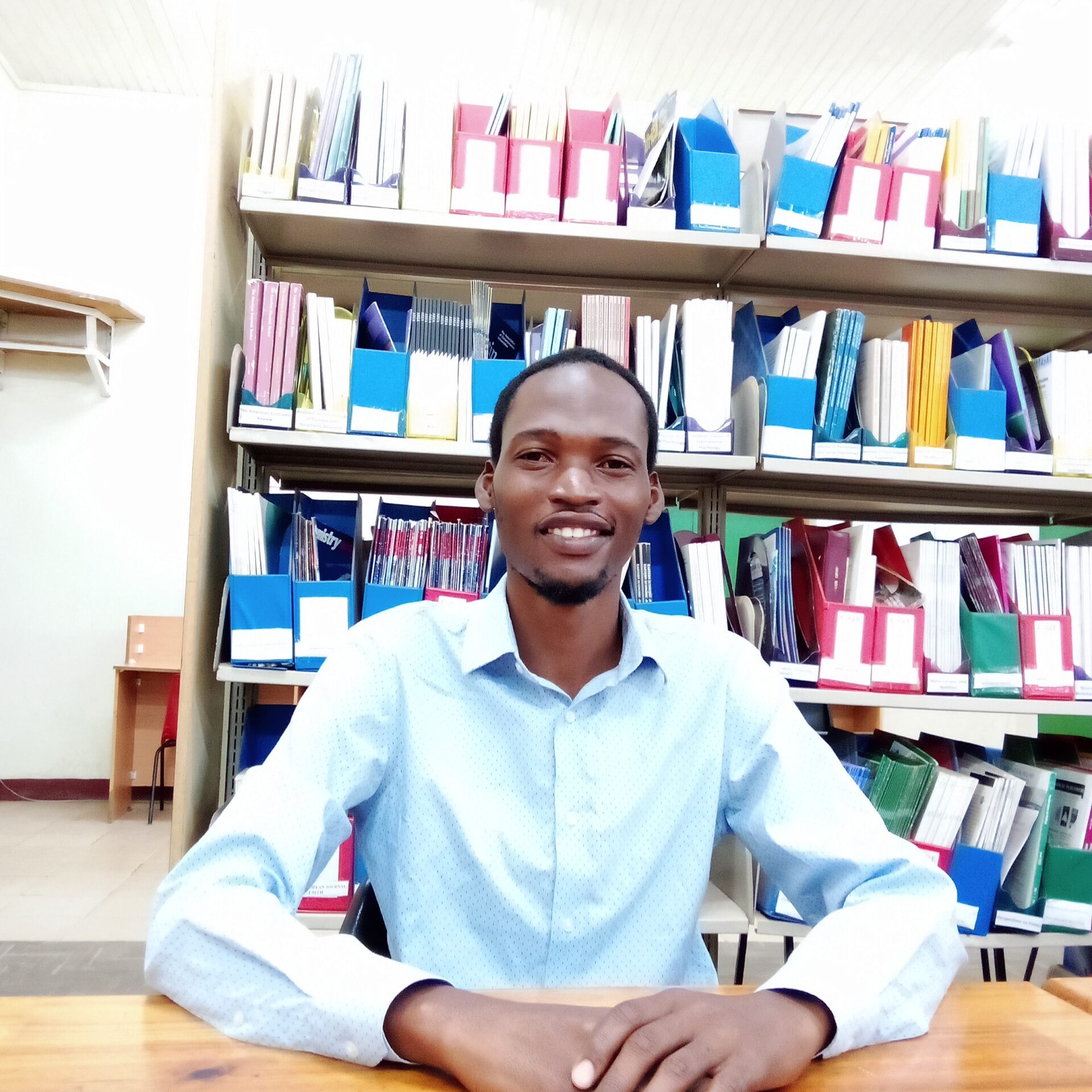
This research project investigates how financial support impacts the ability of vulnerable communities in Chikwawa, Malawi, to respond to recurrent floods. It aims to understand if the financial aid provided by the government and organizations helps these communities take early actions to protect themselves from disasters. The study will use surveys and group discussions to collect data and analyze how financial assistance relates to early actions. By doing this research, we hope to provide valuable information to policymakers and help these communities become better prepared for disasters.
- Tayamika Mchuchu (Team Member): An experienced Agri-Business Manager with a proven track record of advising both farmers and organizations on business risk management, and profitability. Specializes in disaster-resilient agricultural projects, benefiting both private and public sectors.
- Cynthia Anna Phiri (Team Member): Experienced Land Surveying and GIS professional, specializing in data collection, analysis, and disaster management. Certified UAV/Drone pilot with advanced data processing skills. Proficient in GIS and Database Management.
The study will improve disaster preparedness and response strategies, leading to reduced loss of life and property during disasters. It will also help in developing more targeted interventions to support vulnerable communities, ultimately enhancing their resilience during disasters.
© Global Disaster Preparedness Center 2023
